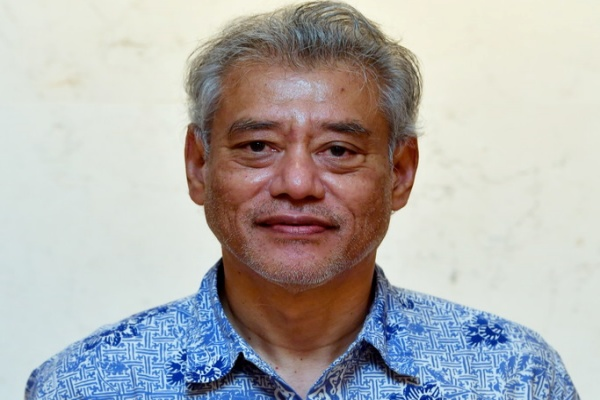News
Lack of political commitment for RE agenda in Malaysia: Jomo

KUALA LUMPUR, June 25 (Bernama) -- Prominent economist Prof Dr Jomo Kwame Sundaram today stressed on the need for political commitment to push for a swift implementation of the renewable energy (RE) agenda as the enforcement of the alternative energy is seen to be lagging behind.
Jomo, who is also Khazanah Research Institute senior adviser, noted that there were RE resources to be considered such as photovoltaic solar panels in which the cost of implementation was cheap.
"Looking at, for example, photovoltaic solar panels, it generally (is) the cheapest.
"I think the general agreement is, it’s not a question of cost but (is there) other enabling conditions. It is really very much a political question and I think the rise of such concerns could be due to the fundamental change in conversation (for instance, climate change) in many parts of the world," he said during a discussion on "A New World Order" here, today.
He was answering a question from the floor on the possibility of the implementation of the new renewable order.
"Looking at what is happening in the renewables (space), it is already happening. The question is whether or not the implementation is going to be made at the governmental level, supra-governmental level or local and municipal governmental level, to try to accelerate that whole transition.
"The transitions are different in different parts of the world and I don't think that there is a one size fits all kind of solutions for which we are talking about," said Jomo, adding the development of other RE alternatives besides photovoltaic solar panels and wind turbines would be very important.
He said a big breakthrough in geothermal energy would be beneficial particularly to those geothermally-active locations and tidal power for countries with coastal areas.
Speaking to reporters later, Jomo urged for a higher government commitment in Malaysia to implement biodiesel agenda in the country as progress was relatively slow in the sector.
He pointed out that the other parts of the world, especially Europe, had been progressing well in implementing biodiesel in their transportation sector.
"Since the 1980s, we have been talking about biodiesel...but we seemed to have made a little progress in terms of pushing or developing biodiesel. In Europe, for example, if you go driving around, you can have a car using only biodiesel.
"In Malaysia, we are still talking about, is five per cent biodiesel (blend) too much, is 10 per cent biodiesel (blend) too much? Is it (because) we have not learnt from other countries. If other countries can implement it, why can't we? I think the question is of the level of commitment at the highest level," he said.
-- BERNAMA
Other News
Sarawak Lepasi Sasaran Kapasiti Gabungan Tenaga Boleh Baharu Tahun Ini - Abang Johari

Oleh Nur Ashikin Abdul Aziz
SINGAPURA, 21 Okt (Bernama) -- Sarawak mencapai 62 peratus sasaran campuran kapasiti tenaga boleh baharu (TBB) tahun ini, melepasi sasaran 60 peratus yang digariskan dalam Strategi Pembangunan Pasca COVID-19 (PCDS) 2030.
Sarawak Pacu Pertumbuhan Tenaga Boleh Diperbaharui Untuk Manfaat ASEAN - Premier

SINGAPURA, 21 Okt (Bernama) -- Sarawak komited menyokong peralihan tenaga boleh diperbaharui di Asia Tenggara dengan memanfaatkan potensinya sebagai "Bateri ASEAN," yang akan membekalkan tenaga bersih menerusi sambungan Grid Kuasa Borneo dan ASEAN.
Belanjawan 2025 Percepat Peralihan Kepada Tenaga Bersih - Solarvest

KUALA LUMPUR, 19 Okt (Bernama) -- Belanjawan 2025 merupakan satu langkah ke arah mempercepat peralihan kepada tenaga bersih di Malaysia, kata Solarvest Holdings Bhd.
© 2025 BERNAMA. All Rights Reserved.
Disclaimer | Privacy Policy | Security Policy This material may not be published, broadcast,
rewritten or redistributed in any form except with the prior written permission of BERNAMA.
Contact us :
General [ +603-2693 9933, helpdesk@bernama.com ]
Product/Service Enquiries [ +603-2050 4466, digitalsales@bernama.com ]